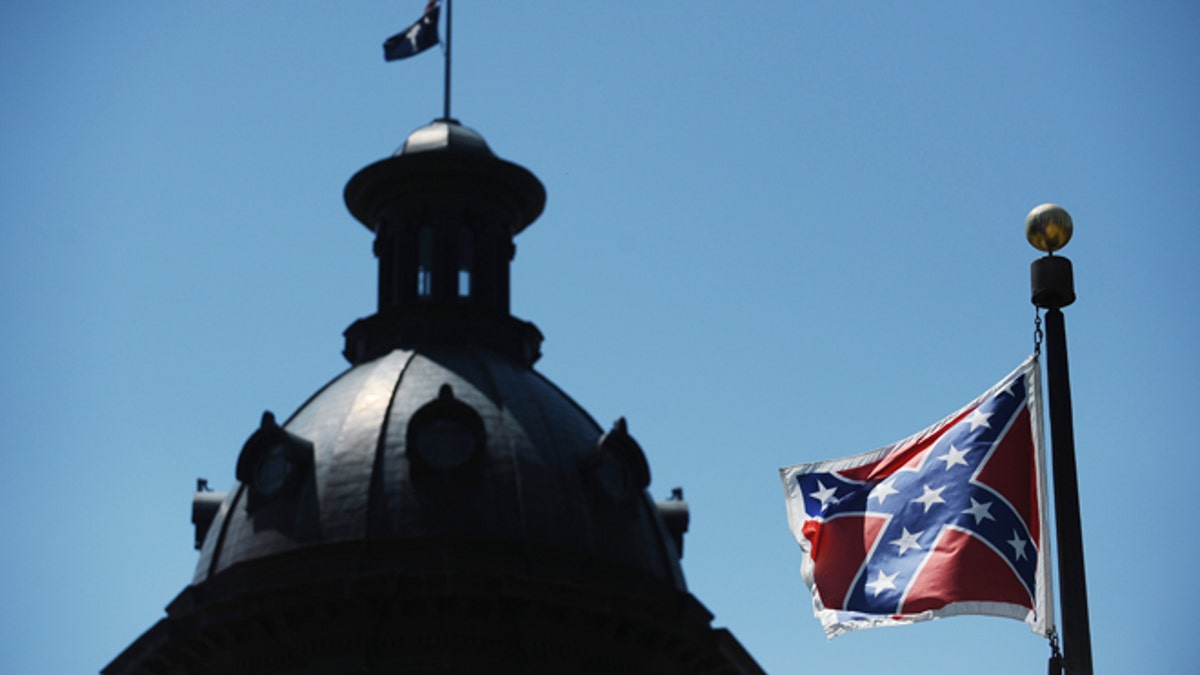
My Southern credentials are thus: I was born in Georgia and grew-up in the capital of the Confederacy – Richmond, Virginia. Large statues of Confederate soldiers graced Monument Avenue in the heart of downtown Richmond. General Robert E. Lee and General Stonewall Jackson were recognized and honored in official state holidays. My high school’s archrival was (and still is) Douglas S. Freeman High School – whose teams are nicknamed the “Rebels.” Then, after graduating from a pair of Virginia colleges and leaving the Old Dominion, I hosted a weekend radio talk-show in Charleston, South Carolina in 2001.
So naturally, whenever I see the Confederate flag, the very first image that automatically pops into my mind is… an orange Dodge Charger, being driven by John Schneider and Tom Wopat. (Go git ‘em, Duke Boys!)
‘Tis the curse of being a member of Generation X, I suppose. (Or perhaps it’s a tribute to the intrepid CBS scriptwriters, and TV’s indelible impact on an impressionable, car-loving preteen?)
But you can’t really blame me: The Confederate flag is simply a symbol, and symbols – by definition – are associative, visceral images. In essence, it’s a conduit that forges an emotional connection between a recognizable object and a series of adjectives, nouns and abstractions. The trouble is, not all images symbolize the exact same thing to the exact same people.
Therein lies the problem.
Whereas one person might see the Stars and Bars of the Confederate flag and think of the Duke Boys evading Boss Hogg in a ’69 Charger, another sees the same flag and seamlessly connects it to Southern history, regional pride, their family’s legacy and states’ rights.
For a party that desperately yearns to increase its diversity, why not answer this way: “I’m from the party of Abraham Lincoln. The only flag I want to salute is the American flag.”
And, of course, still another might think of bigotry, the Klan and unrepentant racism.
Neither is right and neither is wrong, because symbols aren’t defined by right or wrong. Symbols aren’t fixed, finite entities. Instead, they’re fleeting and malleable, because they’re defined by the whims of popular opinion. As popular opinion changes, so does the communicative impact of symbols.
The Swastika dates back to 10,000 B.C. and has long been associate with Hindu and Buddhist religious rituals. But due to the atrocities of the Third Reich, that’s no longer what the Swastika has come to symbolize. Under the banner of the American flag, there have been brutal injustices – including slavery, the systematic destruction of Native Americans, the imprisonment of Japanese Americans and the disenfranchisement of women. But due to other, far-nobler attributes of the United States of America – and the heroic sacrifices of the Americans who carried the flag into battle – the Star Spangled Banner symbolizes freedom, liberty and equality all over the world.
But the endurance of the American flag as a symbol for liberty isn’t by accident. Countless presidents (of both parties), patriots and everyday Americans have fought hard to preserve this association.
Certainly, the Confederate flag has symbolized different things at different times. In the late 1970s, almost nobody blinked when CBS adorned an orange Dodge Charger with the Stars and Bars on its roof, but it’s almost impossible to fathom a mainstream network making the same decision today – especially for a primetime TV show that’s geared at children and young adults.
The times have changed.
Symbols are time-sensitive and ultra-vulnerable to shifts in popular opinion. That why symbols must be rigorously defended by supporters; if they aren’t, they end up being re-branded (redefined). And regardless of which side of the Mason-Dixon Line that you reside, the supporters of the Confederate flag have been very poor brand-custodians. Instead, the Confederate flag has been coopted to mean something different today than what it symbolized just 35 years ago, when CBS proudly placed it on the top of Bo and Luke Duke’s racecar.
Now, in the aftermath of the horrific Charleston church shooting, South Carolina’s placement of the Confederate flag on official government grounds is once again generating headlines. Republican presidential candidates are being asked to weigh-in.
For a party that desperately yearns to increase its diversity, why not answer this way:
“I’m from the party of Abraham Lincoln. The only flag I want to salute is the American flag.”
The American South has a rich history and has been blessed with an impressive legacy of remarkable Southern leaders. Perhaps it’s time for the South to find a new symbol that’s worthy of its heritage, because – right or wrong, whether they like it or not – the current symbol is undermining the Southern brand.
And on a national level, the brand-association is not helpful to the party of Lincoln.








































